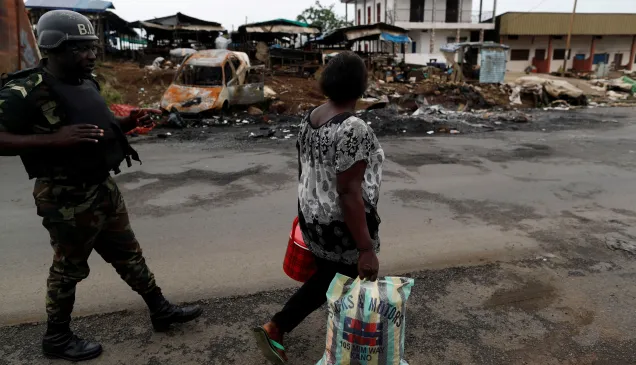Baghdad/Geneva (ICRC) – Observations on Iraq's new recovery phase from Peter Maurer, the president of the International Committee of the Red Cross (ICRC), who visited Iraq between 6 and 8 March, where he met with President Fouad Massoum and traveled to Anbar and Salahuddin provinces:
"The big battles may be over, but I am seeing that their consequences are certainly not. For all the massive destruction I saw in Ramadi and Fallujah, I saw a lot of reconstruction already taking place, and that's a testimony to the resilience of the Iraqi people.
However, beyond reconstruction there is a profound need to give answers on the fate of missing people, to ensure safe and voluntary returns, and to apply judicial processes to detainees regardless of the charges they face or their country of origin. No one is outside the bounds of humanity.
We know that these emotive issues demand courage to face up to, but the process of recovery can move forward only if these crucial elements are addressed. The authorities have told me they are determined to take on these challenges. We at the ICRC, alongside our partners in the Iraqi Red Crescent Society, are committed to supporting them and all Iraqis in their efforts.
In Fallujah, I was touched by seeing people with amputated limbs learning to walk again at the ICRC-supported physical rehabilitation centre. However, I also met an all-female family in a camp in Anbar who told me that they cannot return home. Their male relatives are all either detained or missing and they could see no future for their many young girls. On the brighter side, the enthusiasm of staff and the determination of the students at the school in Ramadi that we recently rehabilitated was really striking."
In 2017, the ICRC helped over 7 million people gain better access to clean water, while more than 2 million people received food parcels and essential household items. More than 300,000 received economic support to reestablish livelihoods and more than 370,000 received treatment at ICRC-supported health centres, including 1,850 weapon-wounded patients at the height of the Mosul battle. The ICRC rehabilitated 54 water systems, five hospitals, 11 primary healthcare centres, and a girls school in Ramadi. ICRC also visited more than 50,000 detainees in 101 places of detention, restored family contacts for some 43,000 people, and clarified the whereabouts of over 1,700 missing persons.
For more information, please contact the following spokespeople:
Nagham Awada, ICRC Baghdad, Tel: + 964 790 191 6927
James Matthews, ICRC Baghdad, Tel: + 964 780 928 4021
Ralph El Hage, ICRC Amman, Tel: + 962 7 7845 4382
Marie-Claire Feghali, ICRC Geneva, Tel: +41 79 536 92 31
Skip to main content



